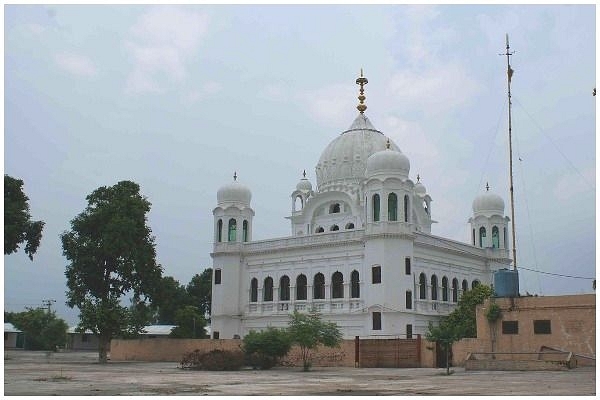
Pakistan’s Kartarpur Fee Is Like ‘Jizyah’, India Should Reject The Idea
This act by Pakistan is reminiscent of the bigotry practised by the Delhi Sultanate.
By imposing this ‘Jizyah’-like fee, it is now amply clear that respect for non-Islamic faiths is not to be expected from across the border.
In ancient times, jizyah was a tax collected from people considered inferior in the social hierarchy. The earliest mentions of jizyah go back to 531 AD where paying jizyah defined one’s low position in the society and in the social structure.
In India, Hindus, under the Islamic rule, at various points in history, had to pay jizyah to visit temples in far off lands. It was imposed not only as a means of harassment of the Hindu population in their own land but also to drive them away from their own religion. From the earliest rulers of the Delhi Sultanate to as late as Aurangzeb in the 17th century, the imposition of jizyah was common in the subcontinent.
Today, as India and Pakistan prepare for the inauguration of the Kartarpur Corridor, the latter wants to take a leaf out of history and impose jizyah on Sikhs, Hindus, and other Indian citizens wanting to visit Kartarpur Sahib in Pakistan.
The discussions for the Kartarpur Corridor began in 1999, resumed in 2004 and 2008. However, it was only in 2018 that the countries worked out an amicable solution, agreeing to the construction of a 4-kilometre road from the India-Pakistan border to Kartarpur Sahib.
Over 100 acres of land has been acquired on the Indian side to build a sprawling complex that would be spread over 50 acres. The complex would include shops, hotels, and other facilities for pilgrims visiting the corridor.
Over the last few months, parties from both sides of the border had been engaged in elaborate discussions over the corridor, from the infrastructure requirements including a bridge on the river Ravi, given its vulnerability to flooding to visa and document requirements.
While a solution was reached on all fronts, even with continued tensions, it is the $20 jizyah or pilgrim fee that has now become the subject of contention between the two countries. Pakistan, essentially, wants every pilgrim visiting the Kartarpur Sahib to pay $20 or approximately Rs. 1,400 as fee or jizyah. While India has protested this imposition, Pakistan has been firm on its stand.
The imposition of the jizyah showcases the shallowness of Pakistan. Since last year, Pakistan has claimed that the initiative of the corridor was its way of respecting the Sikh sentiments across the border. However, with the reckless imposition of $20 jizyah and the refusal to remove it, the state has demonstrated how it puts a price on those sentiments.
The reasons for this jizyah are many.
Firstly, via this tax, Pakistan hopes to recover the cost of construction of the corridor. As per a report in 2010, the corridor would have cost Pakistan around $14 million. Even if one assumes that the project cost Pakistan $28 million, at a $20 fee and the agreed 5,000 pilgrim count per day, Pakistan would be able to recover the cost in less than a year.
Secondly, even if the maintenance and operational cost of the shrine and the corridor are taken into account, the $20 jizyah is too much. Clearly, if the construction of the corridor took $28 million (a wild wild assumption), the maintenance of the complex won’t cost Pakistan $36 million, the amount they stand to make with 5,000 pilgrims a day and $20 jizyah. Thus, even this reasoning is exaggerated.
Three, to show India in poor light. the Kartarpur Corridor, with its history and cultural significance, is a unique experiment between the two countries. Thus, for India to boycott the project at this hour would give Pakistan the fodder not only to wail before the West or before the UN, but also ignite Sikhs in the West, citing the boycott as India’s crackdown on their religious sentiments.
However, India must reject the $20 fee, and boycott the project for the following reasons.
Firstly, as stated above, the $20 jizyah as an operational cost is an exaggeration. A couple of years down the lane, the same money could be used to sponsor acts of terrorism against India. Thus, by paying the jizyah, Indians would be indirectly sponsoring terror against their own country.
Two, the jizyah would alienate a lot of willing pilgrims wanting to go to Kartarpur Sahib. While affordability will be a factor for many, the jizyah would also result in many people choosing not to visit the Kartarpur Sahib. While the first couple of years may see visitors, by virtue of their belief, a slowdown in visitor count with time would be inevitable.
India must remain firm on its opposition to this $20 jizyah. Bending to Pakistan’s will shall be foolish and would set a dangerous precedent for the future. For now, India can express the desire to take over the maintenance cost of the corridor on a quarterly or annual basis, or else choose to boycott the inauguration next month, and hence, the project.
The teachings of Guru Nanak are eternal, but no price must be put on the devotion towards them.